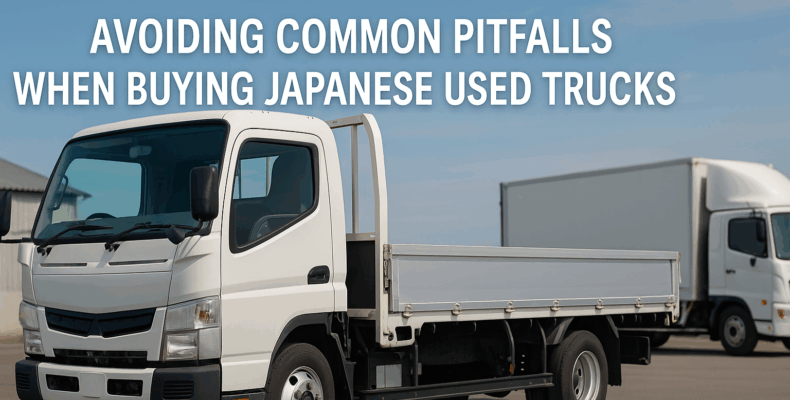Avoiding Common Pitfalls When Buying Japanese Used Trucks
Buying a Japanese used truck can be a smart and profitable decision for both individuals and businesses. These trucks are well-known for their reliability, fuel efficiency, and long lifespan. However, without proper research and careful planning, buyers can face unexpected problems. This guide will help you avoid the most common mistakes, ensuring your purchase is both smooth and successful.
1. Understanding the Importance of Research
Many buyers rush into purchasing without fully understanding the truck’s history. While Japanese trucks often have excellent maintenance records, it is essential to request service logs, mileage reports, and inspection certificates.
Additionally, researching the truck’s model reputation in your intended country is important. Some models have better spare parts availability, while others are known for specific mechanical issues.
2. Working with Trusted Exporters
One of the most common mistakes is choosing the wrong exporter.
To avoid scams or hidden costs, always work with verified and experienced Japanese used truck exporters.
We recommend checking the Top 5 Trusted Japanese Used Truck Exporters for Global Buyers:
https://everycar-review.com/2023/12/09/top-recommended-japanese-used-car-export-companies-for-international-customers/
These companies are based in Japan and have proven track records of transparent pricing, quality inspections, and secure shipping.
3. Inspecting the Truck Before Purchase
Even if you trust your exporter, request high-resolution photos and videos of the truck.
Ask for close-up images of the engine bay, undercarriage, and interior.
If possible, arrange for an independent inspection before finalizing the purchase. This step may cost extra, but it can save you from expensive repairs later.
4. Understanding Total Costs
Another pitfall is underestimating the total cost of importing.
The final price includes not only the truck’s cost but also shipping fees, insurance, customs duties, and local taxes.
Buyers should get a complete cost breakdown in writing before sending any payment.
5. Choosing the Right Specifications for Your Market
Trucks designed for the Japanese domestic market may not always match overseas needs.
Consider the following before purchase:
-
Engine size and fuel type
-
Load capacity and axle configuration
-
Climate suitability for your region
-
Availability of spare parts locally
6. Avoiding Overloaded or Overused Vehicles
Some used trucks may look good but have been used for heavy commercial operations.
Overloaded trucks often suffer from frame damage, worn suspension, and engine strain.
A trustworthy exporter will provide you with full background information so you can avoid such vehicles.
7. Securing Reliable Shipping and Customs Clearance
The final step in a safe purchase is ensuring smooth shipping and customs clearance.
Trusted exporters will handle the paperwork and keep you updated during transport.
This minimizes delays and prevents unexpected port storage fees.
Conclusion
Buying a Japanese used truck is a valuable investment if done correctly.
By researching the truck’s history, working with trusted exporters, and understanding all costs, you can avoid the most common mistakes.
For peace of mind, always consider exporters listed in the
Top 5 Trusted Japanese Used Truck Exporters for Global Buyers, all based in Japan and known for their professionalism.
With the right approach, your imported truck can serve you reliably for many years while delivering strong business returns.
